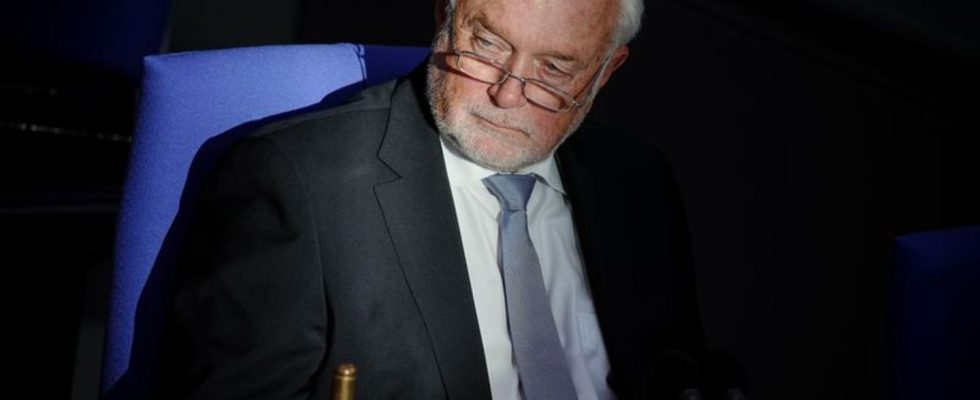Testy mood in the Bundestag
Concerned about the culture of debate in the country: Wolfgang Kubicki, deputy FDP party leader and Bundestag Vice President. photo
© Kay Nietfeld/dpa
Nobody has anything against lively debates in the Bundestag – but there is no objection to improper behavior. The presidium then issues a call to order. This is happening quite often these days.
The mood in the country is becoming more tense – and the debates in the Bundestag are becoming more heated. The result: The number of calls to order issued to MPs has increased significantly. Last year, the parliamentary presidium used this measure 51 times to punish verbal derailments and other misconduct. That was more often than in the entire previous electoral period from 2017 to 2021, in which, according to an overview by German 49 calls to order had been issued in the Bundestag. 30 of the 51 calls for order last year alone went to the AfD, whose MPs Beatrix von Storch (8) and Stephan Brandner (6) took the top places.
Von Storch was also one of two MPs who received a fine of 1,000 euros – increasing the reputation for order. The other MP was Michael Schrodi from the SPD.
With a view to this development, Bundestag Vice President Wolfgang Kubicki calls for “a return to mutual respect and respect for other positions.” There needs to be “less hysteria and political exclusion,” said the deputy FDP chairman of the German Press Agency in Berlin. “It should become clearer to everyone again that in a functioning democracy, mere exclusion should never replace the better argument.”
Appeals for moderation
He is very much in favor of revitalizing the parliamentary debate culture. “But you can also insult your political competitor intelligently, humorously and with respect, without having to cross the line of decency or the law,” said Kubicki.
Such appeals for moderation have been made before – but they remain unheard. “Each and every one of us should be aware of the role model function we have as members of this house,” said Bundestag President Bärbel Bas (SPD) when she opened the first meeting after the summer break last September. People notice how politicians treat each other. “How we discuss with each other influences our democratic culture.”
Regulatory measures are regulated in the Members’ Act and in Section 36 of the Bundestag’s Rules of Procedure. It stipulates that the President can “call members of the Bundestag to order by naming them if they violate order or the dignity of the Bundestag.”
Kubicki: Political fronts are becoming increasingly irreconcilable
An overview by the Bundestag administration of the regulatory measures imposed in each electoral period clearly shows: When the AfD entered parliament in the 2017 federal election, things got rougher there. Immediately before that, in the entire 18th electoral term (2013 to 2017), just two calls to order were given; in the 17th electoral term there was only one, and in the 16th there were also two. However, the current figures are not unique. It was particularly busy in the first legislative period with 156 and then in the 10th (1983 to 1987) with 132 calls to order.
Vice President Kubicki also considers the strong increase to be an “expression of our current times”. Many speeches – especially from the AfD – are aimed at “being well received online in order to entertain one’s own bubble,” he said. Therefore, the wording will be much more pointed. “In general, I am concerned that the political fronts are becoming more and more irreconcilable. A real exchange of arguments often does not take place. Many MPs hide behind an “attitude” that tears down communicative bridges rather than building them.”
A fatal side effect from Kubicki’s point of view: many parliamentary speeches are becoming more predictable and are therefore less and less useful for citizens as a real political decision-making aid. “I fear that many parliamentarians do not realize that they themselves serve as role models for the culture of debate in the country.”

